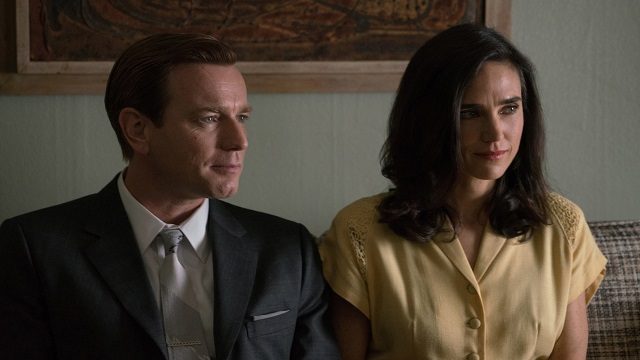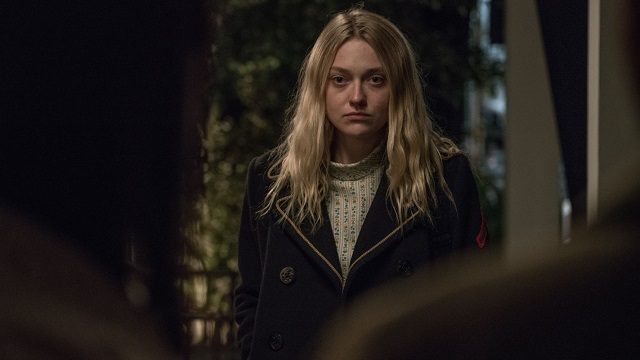

At the premiere of Ewan McGregor’s American Pastoral at the 2016 Toronto Film Festival, his excitement to unveil his passion project was so clearly evident to the audience and press seeing the film for the first time. After a few minutes, it was starting to become evident that McGregor wanted to talk about the film a little more than he wanted to actually show it to us.
Two hours later, the credits rolled and the curtain came down and the room felt very indifferent. Members of the press quickly scurried off to their next screening and more than usual left before the cast and crew Q&A. American Pastoral was met with negative reviews out of TIFF but I found it to be an occasionally engrossing mess of a movie.
The most frustrating aspect of the film is that McGregor’s passion that comes through while talking about the film is not matched on screen. You can be as passionate of a writer or director as you want but if it doesn’t bleed through to the final product, there’s a problem.
Based on the novel by Philip Roth, American Pastoral is set primarily in 1968, where former high school star Swede (McGregor) lives a simple life in an idyllic small town with his wife, Dawn (Jennifer Connelly), and daughter Merry (Dakota Fanning). Swede’s former teenage celebrity as a high school football star makes the family a pillar of the community.
Their suburban bliss is upended when Merry adopts new radical beliefs, associating herself with a group of like-minded people. She is tied to an explosion in town and is not seen anywhere after that. Merry’s actions derail their perfect life, including Swede and Dawn’s marriage. Swede is determined to bring his little girl home, going to any lengths to find her.
Not having read Roth’s original work, I cannot attest to American Pastoral as an adaptation. As a singular film itself, it seems confused what it wants to be – a domestic drama, a political statement, a thriller, perhaps? The themes and tones that run through the film collide rather than coalesce, creating an uneven experience, punctuated by moments that are genuinely felt. There are a few scenes between McGregor and Fanning, both conflicted in their father-daughter dynamic, which offer glimpses of what could have been if the film had been ironed out.
Also, rather distractingly, the film is set through the vantage point of David Strathairn’s character, reflecting upon Swede’s early life. It doesn’t add any dramatic emphasis to the film, only adds on to the runtime. Here, it’s a story tactic to make everything seem full-circle, but like most plot points in the film, it just haphazardly bookends the film.
Roth adaptions have been a tricky aspect in the past and American Pastoral is no different. McGregor seems to have a better handle on working with actors than creating a visually interesting picture and I would like to see him work with a more focused narrative.
Verdict: 3 out of 5
American Pastoral is not the outright disaster that was reported out of TIFF. It’s hugely problematic film, with colliding tones and themes but does offer several moments for the actors to shine. The performances warrant American Pastoral a faint recommendation.


